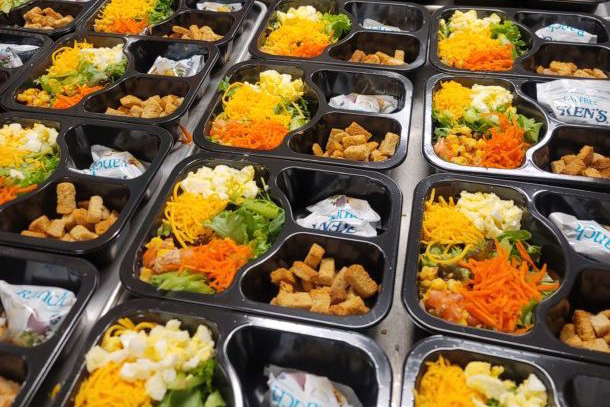
Late last year, state officials announced good news for Vermont’s education fund.
Buoyed by strong tax revenues, the fund — which pays for the state’s public school budgets — is enjoying a surplus of nearly $100 million.
Now, as the legislature wonders what to do with that extra cash, lawmakers may be forced to choose from several different proposals: Free breakfast and lunch for students? Remediating toxic chemicals? Tax rebates?
“It’s a choice that nobody who works in the field of education would want to make,” said Jeff Francis, executive director of the Vermont Superintendents Association.
For the past two years, federal pandemic aid has footed the bill for breakfast and lunch for Vermont’s public school students. But with that money expected to expire at the end of the school year, anti-hunger advocates are urging state lawmakers to pay for it.
The nonprofit Hunger Free Vermont has thrown its weight behind S.100, a Senate bill that would allocate $29 million from the education fund surplus toward a one-year pilot program of breakfast and lunch for Vermont kids.
The bill as written also would cover children who attend independent schools with public tuition money.
Advocates argue that paying for all children’s meals improves kids’ physical and mental health and leads to better academic outcomes. And funding meals for everyone, they say, eliminates stigma and covers low-income students whose families may not meet federal income limits.
“It’s a school meals bill, it’s a support-our-farmers bill, it’s a mental health bill, it’s an improve-learning-and-focus bill,” Anore Horton, executive director of Hunger Free Vermont, said at a rally in support of the bill on the Statehouse steps last week. “It’s a universal bill for good.”
Lawmakers passed that bill out of the House of Representatives on Wednesday. But some have proposed different uses for the surplus money.
Gov. Phil Scott has called for lawmakers to put half the surplus toward career and technical education and send the other half back to taxpayers. In an email Wednesday, Jason Maulucci, a spokesperson for Scott, said the governor still favors that plan.
“Regarding the Legislature’s other priorities with this money, the Governor has said he supports helping those in need receive free school meals at school,” Maulucci said. “However, creating a new universal program with one-time money could, as the legislature has discussed, lead to regressive tax increases that in part pay for meals for children from affluent families who do not need the financial help.”
Others have called on lawmakers to use the money to clean up polychlorinated biphenyls, or PCBs, in school buildings.
The substances, which are believed to cause a range of health problems, including cancer, were used widely in building materials until they were banned around 1980.
In 2020, school administrators discovered the chemicals in Burlington High School, forcing students to abandon the school for a retrofitted department store. The district hopes to build a new high school at a cost of roughly $230 million.
Next month, state officials plan to launch a program to test more than 300 Vermont schools for the chemicals. But that initiative is causing concern for many districts, which fear the potential costs if the chemicals are found in their schools.
School officials have called on the Legislature to set aside money for remediating school buildings if PCBs are detected — from the education fund, if necessary.
That PCB remediation money is “the highest priority,” said Francis, of the superintendents association.
“My hope is that the General Assembly sees fit to put money into PCB remediation,” he said. “And as part of their process, if they provide money for universal school meals as well, that’s great.”
Sen. Brian Campion, D-Bennington, chair of the Senate Education Committee, has also expressed skepticism about using the education fund surplus for universal meals.
[See the latest status on key pieces of legislation using VTDigger’s 2022 Bill Tracker.]
“Right now, I don’t think it makes sense to use one-time monies without a plan going forward,” Campion said. “But I’m going to listen when the bill comes into a committee. I want to pull apart why the House decided to do what they decided to do.”
As most of Vermont’s schools have not been tested, it’s still unclear how much money would be needed for PCB remediation. But estimates put that figure at around $40 million.
Other states plagued by PCB contamination have found another source of cleanup funds: litigation.
Over the past few years, Bayer, the parent company of longtime PCB manufacturer Monsanto, has paid out tens of millions of dollars in settlements to U.S. states over PCB contamination. Earlier this year, New Hampshire received a $25 million settlement over PCBs in waterways.
Asked about the possibility of litigation over PCBs in Vermont, Charity Clark, the chief of staff in the Vermont Attorney General’s Office, said the agency “is aware of this issue and is looking into it.”
Correction: An earlier version of this story misidentified the committee that Sen. Brian Campion chairs.


